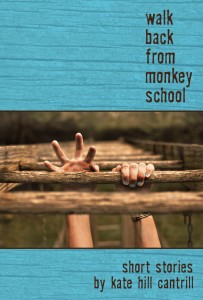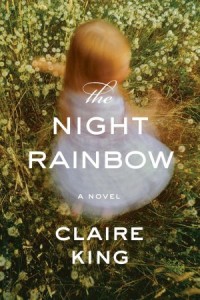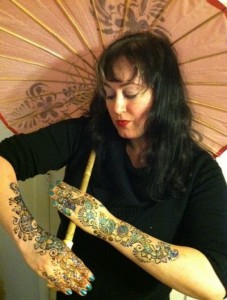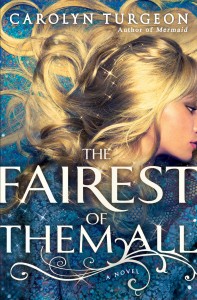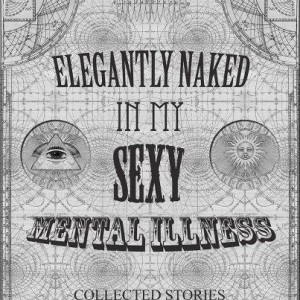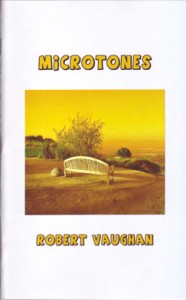 We are pleased to welcome acclaimed and widely published poet Amy King to Writers on Craft today. Amy King is the author of five collections of poetry: Slaves to Do These Things, I’m the Man Who Loves You, and Antidotes for an Alibi (a Lambda Book Award finalist), all from Blazevox Books. Of her most recent book from Litmus Press, I Want to Make You Safe, John Ashbery described Amy King’s poems as bringing “abstractions to brilliant, jagged life, emerging into rather than out of the busyness of living.” Safe was one of the Boston Globe’s Best Poetry Books of 2011. The Missing Museum is forthcoming in 2014 from Kore Press. King teaches English & Creative Writing at SUNY Nassau Community College, is a board member with VIDA: Women in Literary Arts, helps organize “The Count,” and moderates the Poetics List (SUNY-Buffalo/University of Pennsylvania), the Women’s Poetry Listserv (WOMPO) and the Goodreads Poetry! Group. She also co-edits Poets for Living Waters, an international poetry action in response to the BP oil spill in the Gulf of Mexico and other ecological disasters. In 2012, King was honored by The Feminist Press as one of the “40 Under 40: The Future of Feminism” awardees.
We are pleased to welcome acclaimed and widely published poet Amy King to Writers on Craft today. Amy King is the author of five collections of poetry: Slaves to Do These Things, I’m the Man Who Loves You, and Antidotes for an Alibi (a Lambda Book Award finalist), all from Blazevox Books. Of her most recent book from Litmus Press, I Want to Make You Safe, John Ashbery described Amy King’s poems as bringing “abstractions to brilliant, jagged life, emerging into rather than out of the busyness of living.” Safe was one of the Boston Globe’s Best Poetry Books of 2011. The Missing Museum is forthcoming in 2014 from Kore Press. King teaches English & Creative Writing at SUNY Nassau Community College, is a board member with VIDA: Women in Literary Arts, helps organize “The Count,” and moderates the Poetics List (SUNY-Buffalo/University of Pennsylvania), the Women’s Poetry Listserv (WOMPO) and the Goodreads Poetry! Group. She also co-edits Poets for Living Waters, an international poetry action in response to the BP oil spill in the Gulf of Mexico and other ecological disasters. In 2012, King was honored by The Feminist Press as one of the “40 Under 40: The Future of Feminism” awardees.
What do you read when you despair at the state of either your work or modern literature–any “go to” texts?
I don’t despair. I go to Diane Arbus, John Ashbery, James Baldwin, Roger Ballen, Charles Baudelaire, Leonora Carrington, Anne Carson, Claude Cahun, Hélène Cixous, Hannah Hoch, Leonor Fini, David Lynch, Frida Kahlo, Alice Notley, Tomaz Salamun, Gertrude Stein, Cesar Vallejo, Remedios Varo, Carrie Mae Weems and Francesca Woodman to escape ego-ruts. Some here are visual artists; some also write. I read the visual, I read the lives, I read the text. I’ve left musicians and everyone else out.
If you could give just one piece of advice to emerging authors about editing that has served you well, what would it be?
Advice feels prescriptive in possibly unhealthy ways lately. If you’re in my proximity, say, in the form of a student or a writer pushing buttons, I offer challenges. Teaching has helped me evolve some cursory challenges like: reverse the order of each line, make the last the first, etc. Omit every other line. Turn each adjective and adverb into a fortune cookie fortune. Delete every third word. Sculpt another poem with deleted words. Change your addressee from the president to your mother. Editing is writing backwards. Editing is writing.
How has your perception of what you “do” with your work changed as you have continued to write?
If perceptions don’t change, then death assumes responsibility. “Doing” is meeting the unstoppable force with the immovable object while writing a photo at the moment of handshake. How you get there is to continue. “I can’t go on, I’ll go on.” Some call this curiousity. There are many ways to sidestep the takeover. Enable the energy in paintings, music, objects, everything, along: words can unseat atoms. I sometimes think in ekphrastic performances. Others, I choke back sense. I carry on. I continue. I go on.
What do you feel is the purpose of poetry/literature?
There are as many purposes as there are hearts with anterooms. There are as many anterooms as there are Russian dolls inhabiting them. Each doll’s heart has its own heart. Each anteroom opens its heart. We are purposed with heart by opening anterooms. We are the dolls inside every heart. How many is that?
As a human being, what is the best advice you have to offer?
Feel like this at least once when you write, if possible:
You may not believe in magic but something very strange is happening at this very moment. Your head has dissolved into thin air and I can see the rhododendrons through your stomach. It’s not that you are dead or anything dramatic like that, it is simply that you are fading away and I can’t even remember your name.
–Leonora Carrington, The Hearing Trumpet
Also, consider the feasiblity of the golden rule.
I love how you embrace the visual arts under the umbrella of your influences—as well as the function of organized chaos in your editing advice. Lately, I’ve been reflecting on the careers of artists who continue to grow and morph, asserting their own right to move their artistic vehicles in whatever direction they’d like. Caryl Churchill, acclaimed playwright who prefers not to explain her work, is well-known for both sending along whatever she completes and having the liberation to avoid whatever aspects of a playwright’s life that she feels are intrusive to her creative will; it is almost as if she is using the enabled energy of a private creative space to protect that productive continuous self-reinvention as an artist that she prefers, turning out innovative work well into her golden years. I think everyone with a strong will has strategies for keeping their art alive and vibrant. Do you also find that you protect your new projects or art strategies and shield them while they germinate such that their energy will not be diffused? How does your generative flow work?
Just as water finds many paths, the generative flows in countless directions, depending on the day and the mountain or mind. Sometimes talking shop with friends grounds perspective, builds momentum and vision; other times discussion roadblocks the work so that a glass of wine at a cafe table alone is a go-to. Interaction through social media can act as a springboard; whereas workshopping with students might rupture the site where idea meets practice and the detritus shape-shifts, free-flowing for having begun with no agenda. No one policy accesses a jackpot each time; I’m always on the lookout.
Flexibility has been my biggest asset, and likely renders my work less “marketable” for lack of an identifiable constant. As in Wittgenstein’s definition of “games,” the work of “Amy King” varies, held together only by family resemblance. Poetry is a permission with no agreed-upon purpose. It is the physics between us, speculative and full of wonder, wrought through the medium of language. Call it “negative capability,” “dérègelement de tous les sens,” “ostranenie” or “duende,” it is the excess that matter does not contain, but gets at, if handled just so at precisely so. Poetry spans many mediums; hence my pursuit also through the visual and aural and my continued attraction to its mercurial essence.
What’s recently released or in the pipeline for your readers? Give us a sneak peek.
The Missing Museum will appear in 2014 from Kore Press. Here are three poems:
I CAN’T GO ON, I’LL GO ON
—Samuel Beckett
I’m walking through a field.
I see the swell of craggy trees, pot-bellied leaves, an open book, goose shit.
Inside me is a landscape replica, a compass mapped.
A lantern swings in the distance, despite the porous wind.
This baby takes over my steps, steps into my shoes,
and I walk “childlike” among the grasses,
echoing the earthworms, braying like donkey ears
on actor’s cue. A bicycle passes by these accidental burial grounds.
Pineapples and tea roots never enter my mind;
they remain adult remains, unable to vine into my baby head & heart.
A child in the distance hands over a rotten token,
invites me to the Loop-de-Loop.
He wants to pass unnoticed, wants me to distract the barker
with an adult-head face. Initial imitation, I am learning a coastal folk dance
with him while the child rides circles in the air between us.
What once was glass could become a bread or the quivering crystal rabbit
sitting on the table before us now. The stew bubbles midnight’s snack.
My body becomes pregnant and physically alive.
The child harbors inside: we are all fields, elk songs replete.
I feed peanuts to goatface interlopers. We go for the hunt,
me and the boy with antlers tied to our ears.
The silent river nearby learns the ropes of favorite dance steps.
Elderberries ripen their favorite positions, our last minute call for shots
of forest whiskey and deficient sap to nourish
these limbs; the disintegrating lamb crawls out of the pot.
Full from light and the river’s abundant edges, we relax
in the day’s next morning to play pigeon with the birds & rock for a pause.
THAT I WILL LISTEN TO UNTIL
I’m doing it again, conceiving my own grammar, avoiding
the hardboiled heads of law-masters. Every time my own
turns to thought, I make mono-matter for the masses
I imagine will break the Shakespeare of just another day.
This isn’t to say I’ve got anything more than what’s going
for me. But let’s not praise too soon the mighty men
women aspire to – I take on my hunchback pack
the menial jobs in a recession where others fear to kneel.
Not to say those who hold back with macaroni and cheap nuts
aren’t inventing the new star splatter in the gaps
of how this economy will go local post belly up soon though.
We may even go a-bartering again. Some do something ancient then.
Remember the time you told me color comes alive
at Carlsbad Flower Fields in a sea of stinking crisp flower blankets
when the coastal hill becomes a handcrafted quilt? I had never
been to California before. I didn’t believe you
until I read Larry Levis threw the editorial page in the street,
watched him pull up Pierre Reverdy to see his knees and pissed
on the bed of green hay stitched around the hill’s swollen ankles.
This kind of working farm subsists because someone has refused
to give up the practice of peyote and painting in New Mexico
when New York City was supposed to be her only meal ticket, at least,
according to Steiglitz. She left there forever and found loneliness
in the ancient wisdom called hope. Both remain pivotal arts to date.
But back to how words go together. We met over
the new tsunamis when people became
much like the Black Plague numbers. Except there were more
expendables to date, so no need to call up the old country poor
to burn and lime the body count. We began discussing how
to rid the hillsides of ash and bone fragments
as they were soon weighing the colors down and counting out
Hollywood’s insignia. Even the presidents’ faces fell off.
The Americans stood alone then on the global market,
fishing for ways to get back the hatchets they once used at root.
They, as in we, were considered contagions until
the worldwide web was torn asunder and barriers against
nanobots improved. Our children’s children echoed a nostalgia
for concepts waning: half-drunk wine, smoky meats
and the symbolic gesture of touch. A place where men wear
lime-green pants, brimmed hats, and candy-striped pullovers.
They protested, But God does exist as much as angels
and plans patterned by the local neighborhood board
to live the two-kids-house-dog-college dream or
any other golden fragment enlisted
as the future Who We Will Be Then.
We will be then, but before it happens, we keep happening now
in the limoncellos we sip, the late-night gut aches,
the false handshakes over business economies, the difference
between pianos played, apples eaten and profits on paper.
But we go better for the yellow fields rife with daisies that still exist,
jeans that hint at splendor, the swell of an unplanned smile
across a train platform, how the herbs and grains still feel as ancient
and right as when we, on afternoons, go down to meet the sun
at just the right angle, that space where we lose track
of grammar and the cost of what it is to have
not as much as the next town over, to bend closer and take in
the way your bent arm smells in the long hot sun,
opened by how the tiny soul fills out your skeleton
with the warming sounds of blanket words that I will listen to until.
WE WILL NEVER FULLY RECOVER
Because the light resembles marmalade,
the zeitgeist dips gelatinous between our ribs
and makes us speak. My sister is not gay.
My daughter is not gay. I enjoy the war
of this party. My husband’s not gay.
My self is not gay. I will never be as important
to you as your family. Please, more chips & aperitif.
This gathering will be finger foods only,
nothing more substantial to speak the appetite
or test one’s endurance with manners.
I don’t have a dog in this fight; my sister
is post–gay only. I’m merely a gnat sans trench coat
in a small bony space crossing letters out.
The anti-Vanna White. Even if you don’t remember,
you sleep through memory nightly. You sleep
through me and feel your Pinot Noir all the way
back to Napa Valley. Because the total square root
of heat is light that turns a grape
into strains of bottled affection, I hold you
close, stroke your estimations, even before
the growls of this party deliver its host
from the assumption of body, pull us
into her white-hot affection, and whether we
believe or only gesture the Eucharist, our sex
goes gay for all objects in contact.
My husband goes gay, his nipples get bothered,
my brother is gay, he’s a leg length in bathtubs,
my grandmother’s grave echoes with gay—
her silky epitaph and flowers. Gay is the next
pro-creation, save where the bombs and guns
illuminate people harnessed by fatigues
and futures without pay, futures without gay,
death in an imminent trigger. The unemployed also
party less gay when fairies are unable to boot-camp.
Writers on Craft is hosted by Heather Fowler, who cares about writing. She does a lot of it. Visit her profile on Fictionaut or see here for more: www.heatherfowlerwrites.com.
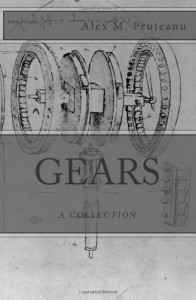

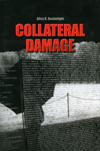
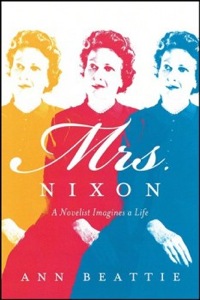
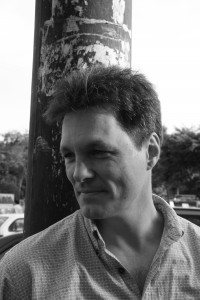 We are pleased to welcome published author
We are pleased to welcome published author 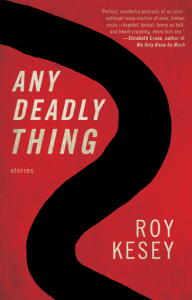 Deadlines and contracts help. There’s great impetus to be found in knowing that someone else, generally someone I like and respect, can’t start doing their job until I finish doing mine. And the closer something gets to being finished, the more important it is to me to see it through—to make sure that all those hours/months/years of time and energy and desire pay off in the form of some new and hopefully worthy thing coming into the world.
Deadlines and contracts help. There’s great impetus to be found in knowing that someone else, generally someone I like and respect, can’t start doing their job until I finish doing mine. And the closer something gets to being finished, the more important it is to me to see it through—to make sure that all those hours/months/years of time and energy and desire pay off in the form of some new and hopefully worthy thing coming into the world.